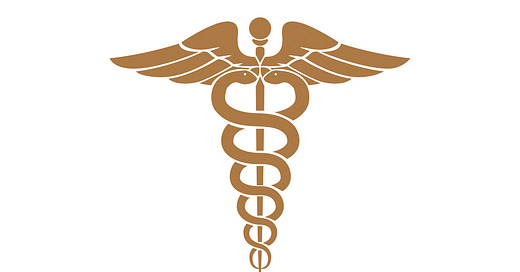First do no harm

Hippocrates was a Greek physician who lived around 400 BC. While he wasn’t the first clinical practitioner, he is one of the most outstanding figures in the field. Often referred to as the “Father of Medicine”, Hippocrates held revolutionary views on healing and left an indelible mark on patient care.
Core to the Hippocratic oath historically taken by physicians is this key tenet: Primum non nocere, First do no harm.
When providing treatment, help as best you can. But most importantly, don’t further injure the patient. It’s quite ethical and practical, not to mention sound guidance for all of us in our interactions with one another.
Yet how often do we heed that proviso: First do no harm?
Do we harbor unkind thoughts for another person? Have we been unfair in our dealings? Are we harsh with ourselves?
All too frequently!
But I’d like to explore a different view of harm. One that focuses on the source and not the symptom. And we’ll use this line from A Course in Miracles as our incision point:
All harmfulness lies in the ego’s judgment. (T-9.IV.3)
It isn’t what we do or say or prescribe or ingest that necessitates increased scrutiny; rather, it’s our choice for the ego that leads to all experiences of harm.
Nearly 2,500 years ago Hippocrates taught that healing comes from within. And while the great physician was primarily focused on the body, he perhaps intuited the essence of mind. That one choice, made in each moment, determines suffering or peace.
We are so conditioned to believe that pain is the result of various circumstances in the world or our body. But we’ve been deceived. All our experiences and emotions derive from the mind.
Hippocrates believed the act of healing must be kind and gentle to the patient. We, too, in our practice ought to be similarly compassionate with ourselves - and everyone else. When we return awareness to the mind and choose against the ego, judgement ceases. What is left is the loving embrace of peace.
Join me in Thursday’s class where we’ll explore the concept of “first, do no harm” and how we can apply that principle to transcend pain. I look forward to seeing you then.



